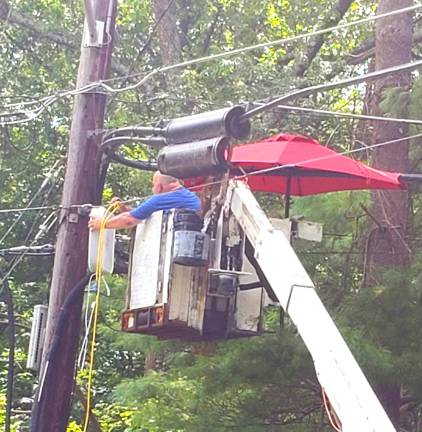Excessive Heat Warning

An "Excessive Heat Warning" will remain in effect until 10 p.m. today. The National Weather Service advises that heat values (real feel) will remain up to 105 or 110, with temperatures in the 90s and dewpoints in the 70s. The most dangerous heat of the day is still in effect, despite some scattered showers that have occurred this evening, along with thunder.
* IMPACT - The heat and humidity may cause heat stress during outdoor exertion or extended exposure.
Recommended actions incude: Take extra precautions if you work outdoors or spend time outside. When possible, reschedule strenuous activities for the next morning. Know the signs and symptoms of heat exhaustion and heat stroke. Wear light weight and loose fitting clothing. Drink plenty of water. To reduce your risk during outdoor work, the Occupational Safety and Health Administration recommends scheduling frequent rest breaks in a shaded or air conditioned environment. Anyone overcome by heat should be moved to a cool shaded location. Heat stroke is an emergency, call 911.
"Excessive Heat Warning" means that a prolonged period of dangerously hot temperatures will occur. It is the combination of hot temperatures and high humidity that creates a dangerous situation. (When due to high dew point, sweat does not evaporate as it usually would and therefore does not cool the body as it normally would).
Try to stay in an air-conditioned environment, stay out of the sun, and check on elderly relatives and neighbors.
Young children and pets should never be left unattended in a vehicle under any circumstance, and this is especially true during hot, humid weather such as today's weather, when a car`s interior can reach lethal temperatures in a matter of a few minutes.
In Sparta Township, members of the public are welcome to sit in the lobby of headquarters as part of the Township's "Go 2" Center, and even charge up their laptop or phone for a while, if they find they are without air conditioning this evening before the temperature finally drops.
For more information visit www.noaa.gov.